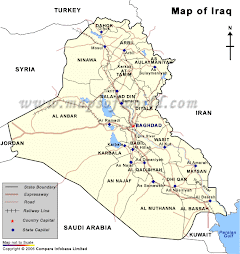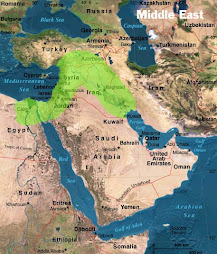Egypt
The State Security Prosecution has coined a new set of charges against Muslim Brotherhood leaders detained earlier this week and remanded in custody for another 15 days. The new accusations allege that the detained Deputy Supreme Guide of the group Mahmoud Ezzat, is in fact the actual Supreme Guide of the International Muslim Brotherhood movement, a position for which he was chosen last month. Analysts have described the recent crackdown as a way to stem Egypt’s most popular opposition group’s political appeal.
Amnesty International called for the immediate and unconditional release of the Muslim Brotherhood members detained in raids before dawn. Amnesty considers the Brotherhood members prisoners of conscious, detained merely for their peaceful political activities. "Amnesty International calls on the Egyptian authorities to stop their crackdown on peaceful political dissent and uphold the rights to freedoms of expression, association and assembly in Egypt," an Amnesty statement read.
Economic front:
Egypt wants to add new names to a UN-approved list of firms with certified carbon offset credits to trade and is offering soft loans and other incentives to encourage polluters to clean up, top environment officials said. Egypt is only a small player in Kyoto Protocol's Clean Development Mechanism (CDM) that allows carbon savings from clean energy projects in developing states to be sold to buyers in rich nations seeking to meet mandatory emissions targets. Mawaheb Abou El-Azm, chief executive of the Egyptian Environmental Affairs Agency, said she wanted to raise awareness of the scheme to encourage more firms to apply and is offering donor-backed loans to help firms meet environmental rules.
Egypt’s urban annual consumer price inflation climbed to 13.6 percent in the year to January, at the top end of analysts’ expectations, state statistics agency figures indicated. Annual inflation in December was 13.3 percent, the figures showed. Eight analysts had forecast urban inflation the most closely watched indicator of prices between 13.0 and 13.6 percent. The average forecast was 13.25 percent. Beltone Economist Reham ElDesoki said food prices were higher in January due in part to increased demand ahead of the Jan. 7 Coptic Christmas.
Egypt's economy, buoyed by climbing exports, should grow by 5.5 percent in fiscal 2010/11 and attract $10 billion in foreign direct investment (FDI) as it recovers from the global economic crisis, a minister said. The growth forecast matches the consensus of 15 independent economists polled by Reuters last month and is stronger than projections for any of the Gulf Arab states apart from Qatar and for neighbors Turkey and Israel. "Factors contributing to this 5.5 percent growth are Suez Canal growth rates and the exports growth level going back to normal," Economic Development Minister Osman Mohamed Osman told a news conference. Osman said the tourism industry, a major foreign currency earner for Egypt accounting for around 11 percent of its gross domestic product, had bounced back from troughs in late 2008 and early 2009.
The Israeli economic newspaper Calcalist reported that an agreement changing the price of Egyptian natural gas exports to the Israel Electric Corporation (IEC) came into effect, according to Egypt's Newspaper Al Masry Al Youm The IEC also announced that new contracts signed with East Mediterranean Gas (EMG), the Egyptian company exporting natural gas to Israel, are now in force. The Israeli paper wrote that prices have increased from US$2.75 to around US$4 per British thermal unit (Btu), signifying a 45 percent rise. The new contracts specify that Israel should receive 2.1 million Btu of Egyptian natural gas annually for 20 years. The deal was estimated to be worth US$10 billion.
Several governorates reported a slight improvement in the butane gas cylinders’ crisis after the supply of cylinders in distribution outlets was increased following violent clashes that left one person dead, three injured and several arrested. A plumber in Imbaba died in a fight with a truck driver’s assistant after he’d jumped on the truck to take one of the cylinders. Clashes also broke out in Giza, Sixth of October and Helwan governorates over gas cylinders.
An American expert in economics warned that American and Egyptian economic relations pay a hefty price because of the tensions that mar the relationship between Cairo and Washington. Barbara Kotschwar said that the differences on political and human rights issues in Egypt adversely affect the economic ties between the two nations. Kotschwar, an expert at the Peterson Institute for International Economic Studies – a research center in Washington DC – said that there were a number of issues that contributed to the lack of development in the discussions toward inking a free trade agreement between the two countries, “including political and human rights issues in Egypt, in addition to US domestic policies.”
Egypt’s economy recorded its fastest growth in more than a year in the fourth quarter, boosted by tourism, construction and manufacturing, Economic Development Minister Osman Mohamed Osman said. The economy of the most populous Arab country expanded 5.1 percent, Osman said in an interview today in Cairo, faster than his earlier forecast. Economic growth was 4.9 percent in the previous three months. “We have turned a corner,” he said. The central bank reduced its benchmark interest rates six times in 2009 to support economic growth. The economy may expand more than 5 percent in the fiscal year through June. Initial data indicated the economy grew 4.5 percent in the fourth quarter, Osman said in January.
Lebanon
Political front:
Interior Minister Ziad Baroud and USAID Mission Director Denise Herbol signed a memorandum of understanding on technical support for Lebanon’s municipal elections, funded by the US government and implemented by the International Foundation for Electoral Systems (IFES).
The Cabinet approved the adoption of pre-printed ballots in the upcoming municipal elections scheduled for June but ministers failed to reach an agreement over other disputed reforms. Information Minister Tarek Mitri told reporters following the Cabinet meeting at the Baabda Presidential Palace that the council of ministers discussed the adoption of proportional representation and the direct election of mayors and their deputies by the voters but failed to reach an agreement.
Economic front:
The Institute of International Finance (IIF) revised upward its estimate for economic growth in Lebanon to 8.7 percent in 2009 from 6 percent previously. It said the new estimate is the highest growth rate in the region, and is an improvement over an already impressive real GDP growth rate of 8.2 percent in 2008, as reported by Lebanon This Week, the economic publication of the Byblos Bank Group. It added that while most emerging economies suffered sharp slowdowns in 2008 and 2009, Lebanon has enjoyed a surprisingly countercyclical growth pattern, as its economy grew faster than China and India last year.
Lebanon ill prepared to deal with disasters
In view of the recent disastrous events which have taken place on Lebanese soil (floods), deep beneath its ground (earthquakes) and in its air space (the Ethiopian air tragedy), a pertinent and necessary question must be asked: Is Lebanon ready for the next major disaster? Lebanon, like many other third world and Arab countries, is certainly not prepared to prevent major disasters nor is it ready to deal with their aftermaths. It is against this background that the author of this article was commissioned to carry out two studies for the United Nations Development Program to assess the needs and the capacities of the Lebanese government in the field of disaster risk reduction. With increased talk in the media about the need for a disaster risk reduction unit, it is useful to review in laymen’s terms the hazards that Lebanon is subjected to, the main ingredients of any disaster risk reduction unit, and what the main priorities should be for any disaster risk reduction unit in Lebanon over the next few years.
Israel and Palestine
Political front: The Yisrael Beiteinu party has submitted a bill to allow expatriates to vote, and is hoping to have the Ministerial Committee for Legislation discuss it. But Labor and Shas have already announced they will oppose the bill in its current format, making it unlikely to pass even if the committee does agree to take it up. Yisrael Beiteinu's proposal would allow anyone who has held an Israeli passport for at least 10 years to vote in Israeli elections. Likud, meanwhile, is working on drafting its own absentee voting bill, however its proposal is less sweeping than Yisrael Beiteinu's.
Haaretz Palestinian Authority President Mahmoud Abbas plans to boycott the Arab League summit planned for March 27 if Hamas political bureau chief Khaled Meshal attends, according to a report Saturday on Al-Jazeera. According to the report, senior PA officials said they have received information that Libya, which is hosting the summit, is planning a bid to have the two leaders sign a reconciliation agreement. The report adds that Abbas is wary of Egypt's response to such a reconciliation effort.
Haaretz Service and The Associated Press- Hamas leader Khaled Meshal will visit Russia next week for talks on ending a Palestinian split and bringing about a resumption of peace talks with Israel, the Russian government said. Hamas, which is backed by Syria and Iran, has been shunned by the West over the Islamist group's refusal to recognize Israel, renounce violence and accept existing interim Israeli-Palestinian peace deals.
Iraq
Political front: There is a ruinous struggle going on in Iraq since April, 2003, when U.S. forces entered Baghdad. It resembles in several aspects a war in proxy fought under the umbrella of U.S. occupation. The combatants are Iran and parties such as Saudi Arabia and other destructive forces some of which are Arabs by identity. The struggle has been the bloodiest one can imagine. Its victims have been the sons and daughters of the Iraqi people.
Almost all the candidates who contested their ban from Iraq's upcoming parliamentary election did not submit their cases properly and may have lost the chance to appeal, an Iraqi legal body said today. Nearly 500 candidates for Iraq's March 7 vote were disqualified from standing in the election by the Justice and Accountability Commission for alleged links to Saddam Hussein's outlawed Ba'ath party, sparking political uproar.
The campaign for Iraq's parliamentary elections officially started today amid a continuing controversy over a ban on scores of candidates. Many of those on the blacklist were banned for links to the Ba'ath party of former Iraqi leader Saddam Hussein. The ban raised tensions between Sunni Muslims and Shi'ites, with many Sunni Muslims -- who were dominant under Hussein -- complaining they were being discriminated against by the Shi'ite-led government.
Economic front: Iraq has urged Iran to implement a memorandum of understanding under which Iranian firms are required to implement big housing and construction projects in the country. Housing and Reconstruction Minister Bayan Dazaai said big projects awaited Iranian firms among them bridges and large housing projects. The countries signed the memorandum last year. Iran had promised to engage its firms in Iraq’s post-war reconstruction. Iranian firms are very active across the country and shops in Iraq brim with Iranian goods. Currently a senior Iranian construction and housing official, Hassan Danabi, is visiting Iraq exploring business opportunities for Iranian firms.
Subscribe to:
Post Comments (Atom)





No comments:
Post a Comment